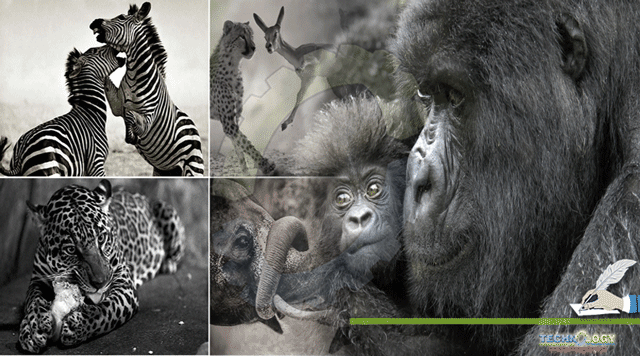Instinctive behaviour is defined as an unlearned response to a situation. It is a behaviour shown by an entire species, exhibited in times of fear or excitement, and may not be learned beforehand.

By Afsah Asif Syeda Fatima Tuz Zahra
Neural Control of Instinctive and Innate Behaviour
For example, the general human fear of snakes, the maternal instincts, or the crying of a baby at the time of birth, all of these are innate behaviours. . Humans have instinctive desires, and emotions and the ability to remember and learn.
An instinct shouldn’t be confused with a reflex. A reflex is the response of an organism to a specific stimulus, such as the pupil contraction in response to bright light. Instincts, on the other hand, are inborn patterns of behaviour that an organism must exhibit and these cannot be overcome by the force of will. Whereas, reflexes can be eased with time and training.
The behaviour of animals determined by their instincts varies from one species to another. As the complexity of the nervous system of the organism increases, the role of their instincts in behaviour decreases. The part of the brain, that organizes metabolism, growth, sexual differentiation, and the desires and drives necessary to achieve these instinctive aspects of life, is the hypothalamus and it is a region comprising the septal and preoptic areas.
The hypothalamus is thought to play the main role in expressions of instinctive behaviours in humans. The researchers have found out that the instinctive behaviour is initiated by “command” hormones that adapt activities to discrete groups of peptide hormones in the brain. These hormones release small proteins to communicate with other parts of the brain and body.
Tackling the question of behaviour in humans is a complex issue, for it includes emotions, desires, drives, motivations, and general response to body needs like food and sleep. Our instinct is to cover our faces when we trip but we cannot fulfill and change our emotional responses based on these instincts. If one encounters the same situation, again and again, his behaviour towards it changes, his reflex and instinct may cause him to lose his fear and not react to the given stimuli. When emotions are concerned, the situations are always autonomous and unprecedented, which, therefore, cannot be controlled.
A key stimulus is the even that initiates any innate behaviour, which leads to the production of Fixed Action Patterns (FAP). Multiple key stimulus are required to trigger an FAP. To determine the type of FAP initiated, sensory receptor cells of prime importance. For instance, the reception of pheromones through nasal sensory receptor cells may trigger a sexual response, while the reception of a “frightening sound” through auditory sensory receptor cells may trigger a fight or flight response.
The question that arises, after all this research, is that are these instinctive behaviours controllable? In animals, if a group of animals bullies the other, the other animals become avoidant of them. This avoidance is their instinct which is followed even if the bullies stop. In humans, the control of instinctive behaviours is learned overtime with age, which helps them regulate their instincts to balance their needs.
This is a vast subject of study and even its origin, the Hypothalamus, hasn’t been properly understood yet. The ability to understand, control and change the instinctive behaviour of organisms is a tough task because both animals and humans exhibit their raw, innate behaviours in their natural habitat rather than the laboratories and testing centers. Despite this hurdle, efforts are being done to provide the most natural habitat to test subjects and testing them in various situations. Moreover, the modern scientific advances in the field of neuroscience provide an opportunity to understand the neural basis of instinct.
Authors: Afsah Asif Shaikh and Syeda Fatima-tuz-Zahra, Genetics Department, Kinniard College for Women University, Lahore
References:
Understanding the control of instinctive behaviour. (n.d.). Retrieved November 10, 2020, from https://www.sainsburywellcome.org/web/qa/understanding-control-instinctive-behaviour
Instinctive Behavior. (n.d.). Retrieved November 10, 2020, from https://www.alleydog.com/glossary/definition.php?term=Instinctive+Behavior